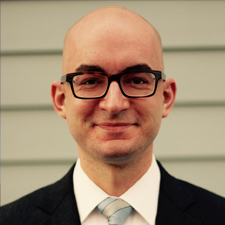
Ryan Walsh
2012 John Marshall Fellow
What is your current position?
Chief Deputy Solicitor General of Wisconsin.
What inspired you to choose this career path?
?I loved studying constitutional history in college, so I ended up going to law school with the hope that I’d work in appellate litigation some day and focus on constitutional issues. I’d also hoped to work in public service. I’m now doing all of that on behalf of the great state of Wisconsin, where I grew up.
What are you currently working on?
?I’m preparing for an oral argument in the U.S. Court of Appeals for the Seventh Circuit in a case called One Wisconsin Institute v. Thomsen, which is a constitutional and statutory challenge to over 15 of Wisconsin’s election laws. Then I’ll turn to another case pending in the Seventh Circuit regarding the constitutionality of Wisconsin’s right-to-work law.
Forbes recently named you one of “30 people under 30 working in Law and Policy, “Championing individual rights and political movements.”
How does it feel to have your name on such a prestigious list?
?It was kind of someone to think to nominate me, but I can think of plenty of other folks who deserve to be on that list more than I!?
What’s your fondest memory of the Claremont Institute?
?The late nights of sometimes serious, sometimes hilarious conversations in the hospitality suite were a highlight. I particularly remember one night when, beginning around 2 a.m., I listened as three Claremont graduate students engaged in a multi-hour catechesis of Aristotle’s Ethics, parrying back and forth with obscure quotations (all committed to memory, of course).
Who was more important for their time, George Washington or Abraham Lincoln? Why?
My answer is the same as Harry Jaffa’s when (I’m told) he was asked who was greater, Churchill or Lincoln: “If you look up into the high mountains, their tops shrouded in clouds, it is impossible to tell which is higher.”?
What books are you reading right now?
?The first volume of Michael Burlingame’s Abraham Lincoln: A Life and Interior Freedom by Jacques Philippe.
You were previously a law clerk for Justice Antonin Scalia.? W?hat was that experience like and what did you learn by clerking in the Supreme Court?
I recently wrote on this topic for National Review. The experience was wonderful and transformative. The Justice was a great man. From him I learned (among other things) the importance of intellectual honesty, courage, cheerfulness, and serenity.

